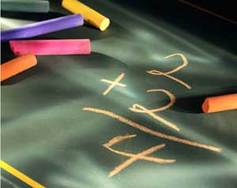Better Maths

What is the Better Maths Programme?
The Better Maths Programme is an education programme which trains volunteers to work with 1st class children at primary school in Tolka Area Partnerships catchment area with the aim to improve educational outcomes in relation to maths and number. This programme was designed and implemented by Maths Recovery UK and Ireland. Tolka Area Partnership and Dr. Bob Wright (Southern Cross University, NSW, Australia).
Programme Aim
The aim of the programme is to improve the Maths and numerical skills of 1st class children attending primary schools in the Tolka Area Partnership catchment area with a view to increasing engagement in Maths and education in local schools.
Programme Objectives
1. To help children engage positively in maths and develop basic maths-related concepts
2. To raise the self esteem and confidence of children
3. To have a positive impact on parental involvement, community involvement, holistic school experience, behaviour, attitudes to maths and attitudes to learning at school
4. To provide quality training to enable and support community volunteers to deliver the programme
5. To pilot, evaluate, re-plan and re-pilot the maths programme developing into a model of good practice for mainstreaming
6. To deliver quality training to volunteers and school staff to improve numeracy kills
7. To positively influence a future career in the fields of science, maths or business
How is the programme delivered to children?
The programme is delivered on a one to one basis. All training of children is carried out using visual and kinaesthetic methodologies to create a more hands on approach to understanding basic maths concepts. The children will receive 2 x 20 minute sessions per week for 10 weeks.
The Better Maths Programme is an education programme which trains volunteers to work with 1st class children at primary school in Tolka Area Partnerships catchment area with the aim to improve educational outcomes in relation to maths and number. This programme was designed and implemented by Maths Recovery UK and Ireland. Tolka Area Partnership and Dr. Bob Wright (Southern Cross University, NSW, Australia).
Programme Aim
The aim of the programme is to improve the Maths and numerical skills of 1st class children attending primary schools in the Tolka Area Partnership catchment area with a view to increasing engagement in Maths and education in local schools.
Programme Objectives
1. To help children engage positively in maths and develop basic maths-related concepts
2. To raise the self esteem and confidence of children
3. To have a positive impact on parental involvement, community involvement, holistic school experience, behaviour, attitudes to maths and attitudes to learning at school
4. To provide quality training to enable and support community volunteers to deliver the programme
5. To pilot, evaluate, re-plan and re-pilot the maths programme developing into a model of good practice for mainstreaming
6. To deliver quality training to volunteers and school staff to improve numeracy kills
7. To positively influence a future career in the fields of science, maths or business
How is the programme delivered to children?
The programme is delivered on a one to one basis. All training of children is carried out using visual and kinaesthetic methodologies to create a more hands on approach to understanding basic maths concepts. The children will receive 2 x 20 minute sessions per week for 10 weeks.